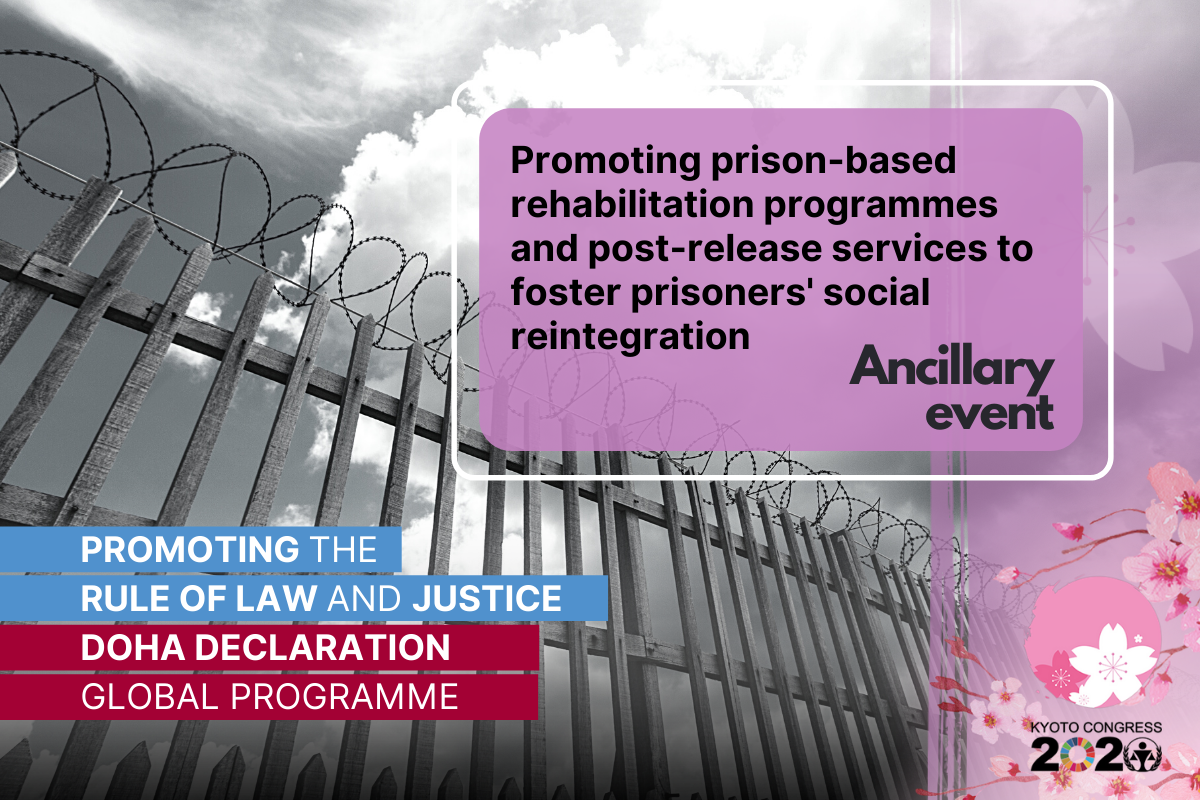![]()
Rehabilitation and social reintegration of prisoners
Adopted at the conclusion of the 13th United Nations Congress on Crime Prevention and Criminal Justice, the Doha Declaration highlights the importance of supporting measures to support the rehabilitation and social reintegration of prisoners into the community.
Within the framework of the Global Programme for the Implementation of the Doha Declaration and its pillar on fair, humane and effective criminal justice systems, UNODC supports Member States in establishing a more rehabilitative approach to prison management.
Investments into corresponding programmes for prisoners are one of the best and most cost-effective ways of preventing their re-offending, with significant benefits not only for the individuals concerned, but also for public safety more broadly.
Supporting rehabilitation programmes in prisons
UNODC assists Member States in breaking the cycle of re-offending by providing prison administrations with technical guidance on how to initiate and/or enhance rehabilitation programmes, in close coordination with other (non-)governmental stakeholders, including civil society and the private sector. All guidance and advisory services are based on the United Nations Standard Minimum Rules for the Treatment of Prisoners (the Nelson Mandela Rules) - UNODC's 'normative compass' in this regard.
In support of this objective, UNODC has developed a ' Roadmap for the Development of Prison-based Rehabilitation Programmes', which provides practical guidance for prison administrations in order to assist them in developing high-quality and sustainable rehabilitation programmes that meet international standards. Additional guiding tools published under the auspices of the Global Programme are the ' Handbook on Anti-Corruption Measures in Prisons' and the second edition of the ' Introductory Handbook on the Prevention of Recidivism and the Social Reintegration of Offenders'. Another tool currently under development is a practice-oriented handbook on the classification of prisoners.
These guidance materials form the basis for the concrete technical assistance provided by UNODC, in a second step, to selected Member States around the world to support the implementation of new or enhanced prison-based effective rehabilitation and social reintegration programmes. Sound planning, including the proposed programme's responsiveness to local needs, human rights compliance as well as sustainability provided key selection criteria for such support, which focuses on education, vocational training and work programmes for prisoners.
Supporting self-sustainable national brands of prison products
In a third step, UNODC is supporting the creation of national brands of prison products aimed at enhancing prisoners' work and products with a view to generate income for prisoners, increase their self-esteem, qualifications, and employability upon release, as well as, more generally, to raise awareness in the general public that prisoners are a continuous part of society.
UNODC is preparing a technical guide to assist Member States in creating or strengthening their national brand of prison products emanating from prison-based work programmes in line with international standards. The guide will focus on requirements in terms of safeguards to preserve prisoners' rights, and on requirements related to marketing and the organizational set-up of such a brand.

